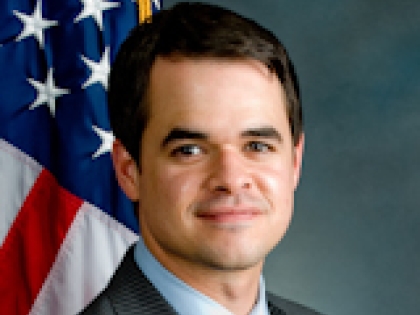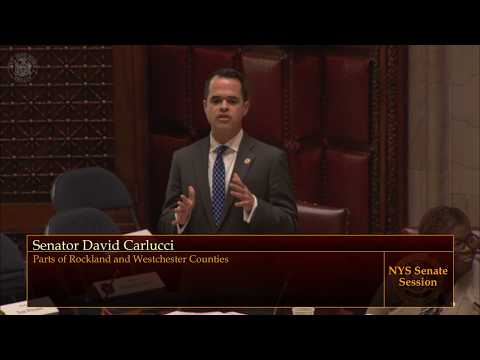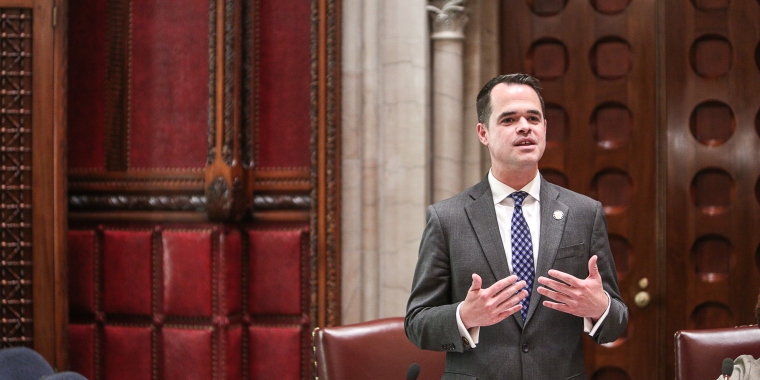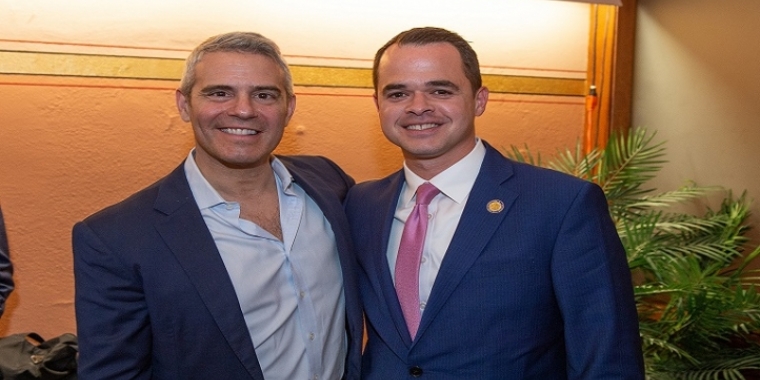
Government Efficiency
David Carlucci
January 11, 2011
-
ISSUE:
- Government Operations
Senator Carlucci Works
to Streamline Government
Issues Recommendations to Governor Cuomo
Albany, NY - Senator David Carlucci (D-Rockland) and the Independent Democratic Conference (IDC) today introduced a series of recommendations to Governor Cuomo and his Spending and Government Efficiency (SAGE) Commission that will help in their goal to right-size New York's sprawling bureaucracy.
The IDC's recommendations to crack down on overtime abuses, develop new accountability standards for outside contractors, review the use of state assets, and eliminate duplicative administrative functions, are based upon the work performed by the Senate Task Force on Government Efficiency.
“New Yorkers work hard for their money and deserve to know that their tax dollars are being used in an ethical and efficient manner. Based on the report by the Senate Task Force on Governmental Efficiency, I am recommending examining the practice of how we use taxpayer funded assets, the practice of overtime and the consolidation of redundant administrative positions and offices that increase state costs without increasing the effectiveness of services,” Senator David Carlucci (D-Rockland) said.
“Such arrangements undermine taxpayers’ trust in government and deplete the States’ limited financial resources,” Senator Carlucci said. “At a time when we are asking all New Yorkers to do more with less, we cannot allow such waste and inefficiency to continue. We must work to streamline government and continue to provide critical services New Yorkers rely on. I look forward to working with Governor Cuomo and my Senate colleagues, in finding ways to make government as efficient as possible.”
Senator Carlucci sent copies of the Task Force's reports and recommendations to Governor Cuomo and SAGE Commission Co-Chair Paul Francis.
The recommendations are based upon Task Force reports that focused on the SUNY system, the State Department of Transportation, the State Department of Correctional Services, and the Office for People with Developmental Disabilities.
Based upon these reports, which can be found at www.nysenate.gov/committee/task-force-government-efficiency, the IDC recommends:
Cracking Down on Overtime Abuse
In both Fiscal Year 2008-09 and Fiscal Year 2009-10, the State spent more than $400 million in overtime. In 2009 alone, the Departments of Transportation, Correctional Services and OMRDD, the Task Force discovered a combined spending of $198.4 million in overtime.
The IDC recommends that the administration implement caps on the amount of overtime an employee can earn in relation to their salary.
It is additionally recommended that the administration work with the various bargaining units to end any practices that make the distribution of overtime unequal. This includes ending any rules that gives priority to more senior employees when it comes to being eligible for voluntary overtime.
Enact Stricter Standards for State Contractors
The Task Force’s April 2010 report uncovered millions of dollars in DOT spending on outside contractors for projects and tasks that could have been performed at a lesser cost by in-house workers. The Task Force identified 479 DOT contracts worth $147.5 million that were approved, but expired before the agreed upon project or service was ever started.
While the money was not lost, it was tied up while the state was cutting back on essential services.
The IDC recommends new accountability standards for those who seek to do business with the state.
Categorize and Re-assess the Use of Certain State Assets
The Task Force's investigation into DOCS spending included claims by employees at DOCS that prison wardens were being given the use of luxurious homes near prisons for little, or no, cost. A separate inquiry found that in 2008, OMRDD paid more than $1.9 million for the purchase of two homes to care for 13 client. One of those properties, which included a pool and a hot tub, appraised for $5,000 less than the final purchase price. This price was 63 percent higher than the average area sales price during that time period.
The IDC recommends establishing a comprehensive and centralized database of state assets, and making a determination as to whether these assets should remain under state control. The state must also review policies relating to state-owned “perks,” such as apartments and houses.
Eliminate Duplicative Administrative Positions
In the examination of SUNY and DOCS the Task Force found examples of redundant administrative positions and offices that increase State costs without increasing the effectiveness of State services
The Task Force reviewed the spending of various police forces at SUNY campuses and found a surplus of high priced administrators.
At DOCS, the Task Force focused on several clusters of prisons across the State, i.e., areas in which two, or more correctional facilities are located right next to each other.
Each prison at these clusters had their own independent administrative staff, including payroll and contracting staffs, even though each facility used the same local businesses to provide them with supplies.
The IDC recommends that administrative functions at these various state facilities be consolidated. Assuming these consolidations led to a savings of 20% from the previous cost, the State could save $10 million each year in payroll expenses.
It further recommends that the administration of the SUNY police system be centralized. As part of this centralization, the position of police chief for these local departments would be eliminated and replaced by a single administrator.
###
Share this Article or Press Release
Newsroom
Go to Newsroom

